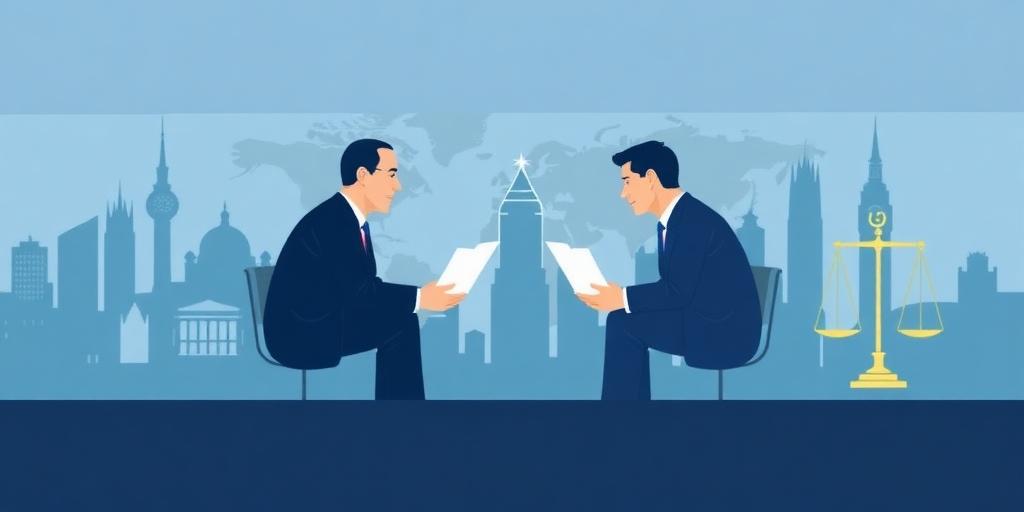Diplomacy and the Future of International Law
In an increasingly interconnected and complex world, diplomacy and international law stand as the primary mechanisms for maintaining peace, fostering cooperation, and resolving disputes among nations. This article explores the evolving relationship between diplomacy and international law, examining their current roles and future trajectories in shaping global governance.
The Foundations of Diplomacy and International Law
Diplomacy, at its core, is the art and practice of conducting negotiations between representatives of states. It encompasses a broad range of activities, including treaty-making, mediation, and the establishment of diplomatic relations. International law, on the other hand, provides the legal framework within which these interactions occur. It comprises treaties, customary international law, general principles of law, and judicial decisions that govern the behavior of states and other international actors.
The Symbiotic Relationship
Diplomacy and international law are interdependent. Diplomacy often leads to the creation and modification of international law through treaties and agreements. Conversely, international law provides the norms and principles that guide diplomatic negotiations and decision-making. This symbiotic relationship ensures that international relations are conducted within a framework of agreed-upon rules and standards.
Current Challenges and Opportunities
Several challenges confront diplomacy and international law today:
- Erosion of Multilateralism: The rise of nationalism and unilateralism threatens the effectiveness of international institutions and agreements.
- Cyber Warfare and Digital Sovereignty: The emergence of cyber warfare poses novel legal and diplomatic challenges, requiring new norms and regulations.
- Climate Change and Environmental Law: Addressing climate change demands robust international cooperation and the enforcement of environmental laws.
- Human Rights and Humanitarian Intervention: Balancing state sovereignty with the protection of human rights remains a contentious issue in international law and diplomacy.
Despite these challenges, there are also significant opportunities:
- Technological Advancements: Technology can enhance diplomatic communication and facilitate the monitoring and enforcement of international law.
- Increased Role of Non-State Actors: NGOs, multinational corporations, and international organizations play an increasingly important role in shaping international norms and practices.
- Growing Awareness of Global Interdependence: The recognition that global challenges require collective action can foster greater cooperation and adherence to international law.
The Future of Diplomacy and International Law
Looking ahead, diplomacy and international law must adapt to address emerging global challenges. Key areas of focus include:
- Strengthening International Institutions: Reforming and empowering international organizations to effectively address global issues.
- Promoting the Rule of Law: Reinforcing adherence to international law and ensuring accountability for violations.
- Enhancing Diplomatic Training: Equipping diplomats with the skills and knowledge necessary to navigate complex international relations.
- Fostering Inclusive Dialogue: Engaging a wider range of stakeholders, including civil society and the private sector, in international decision-making.
- Developing New Legal Frameworks: Creating legal norms and standards to address emerging challenges such as cyber warfare and artificial intelligence.
Conclusion
Diplomacy and international law are indispensable tools for managing international relations and promoting global order. By addressing current challenges, seizing new opportunities, and adapting to evolving global dynamics, diplomacy and international law can continue to play a vital role in shaping a more peaceful, just, and sustainable world.









